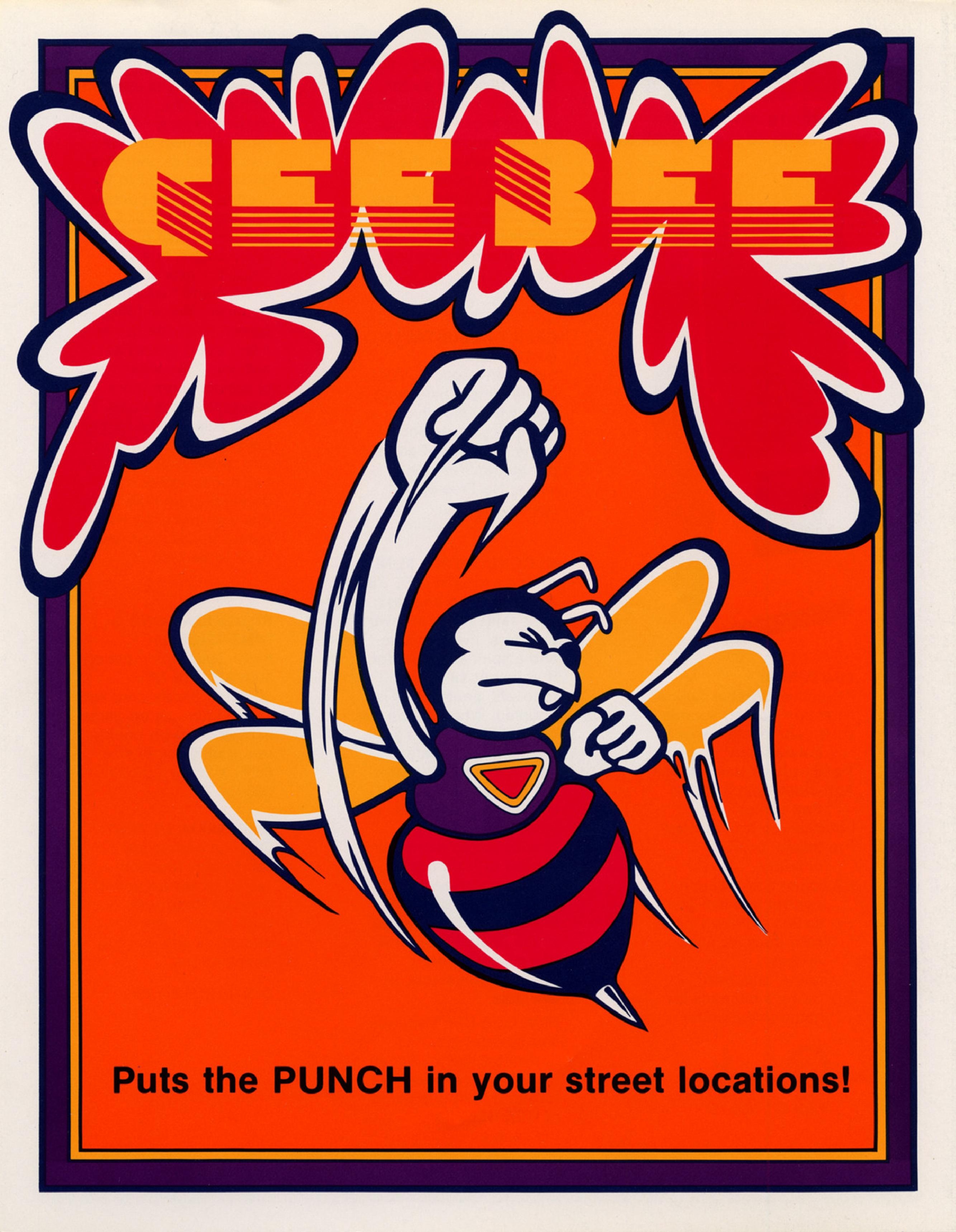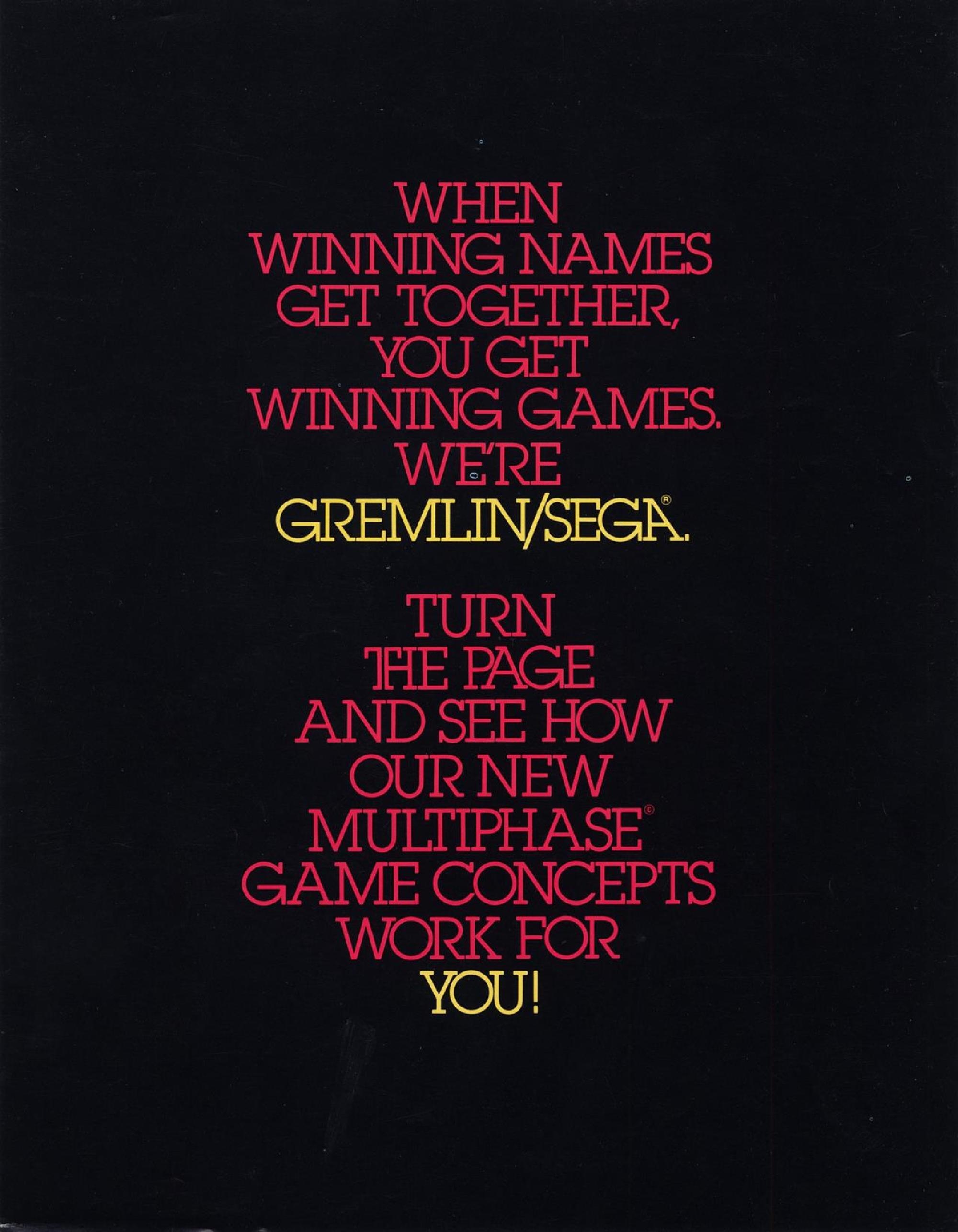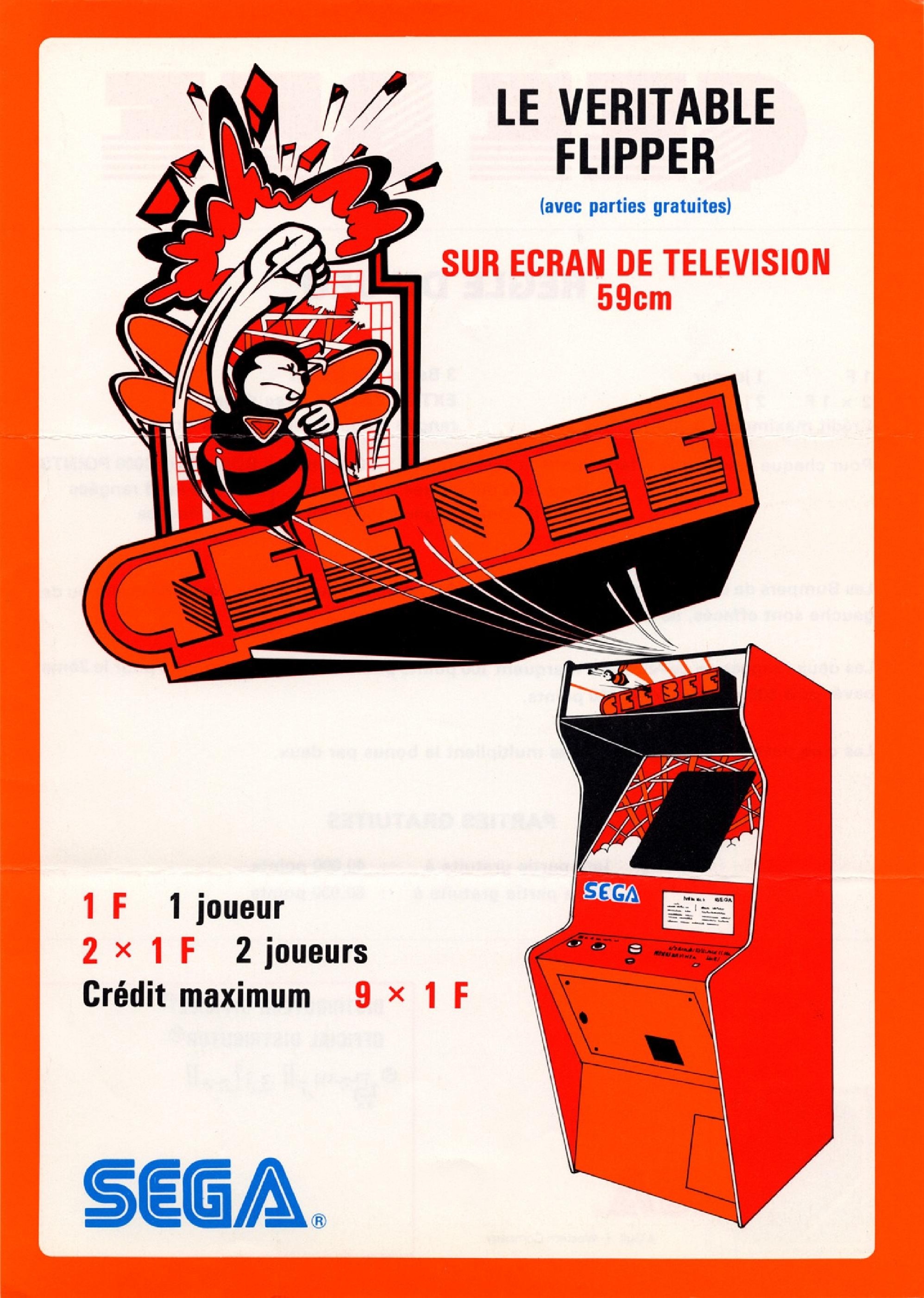Difference between revisions of "Gee Bee"
From Sega Retro
| Line 22: | Line 22: | ||
==Promotional material== | ==Promotional material== | ||
{{gallery | {{gallery | ||
| − | |{{gitem|GeeBee Arcade FR Flyer.pdf | + | |{{gitem|GeeBee Arcade US Flyer.pdf|US flyer}} |
| + | |{{gitem|GeeBeeHeadOn Arcade US Flyer.pdf|US flyer (with ''[[Head On]]'')}} | ||
| + | |{{gitem|GeeBee Arcade FR Flyer.pdf|FR flyer}} | ||
}} | }} | ||
Revision as of 05:41, 25 November 2018

| |||||||||
| Gee Bee | |||||||||
|---|---|---|---|---|---|---|---|---|---|
| Publisher: Namco, Gremlin Industries (US) | |||||||||
| Developer: Namco | |||||||||
| Genre: Action | |||||||||
| Number of players: 1-2 (alternating) | |||||||||
|
This teeny-tiny article needs some work. You can help us by expanding it.
Gee Bee (ジービー) is an arcade game developed by Namco released in 1978. It was Namco's first arcade game to be developed internally, and was designed by Touru Iwatani, the creator of Pac-Man.
Gee Bee is very similar to Atari's Breakout, though has two paddles, pinball-like bumpers, and blocks that need to be hit on the side of the playfield. The game runs in black & white; a color overlay placed over the screen is used to fake color. MAME simulates this overlay.
Several versions of Gee Bee exist. The game was brought to North America by Gremlin Industries, and this version of the game was brought to Europe (or France at least) by Sega. Another European release of Gee Bee distributed by Fratelli Bertolino also exists.
The Gremlin version replaces the "N-A-M-C-O" letters on the bumpers with the company's distinctive "G" logo.
Promotional material
Physical scans
| Arcade, FR | ||||
|---|---|---|---|---|





